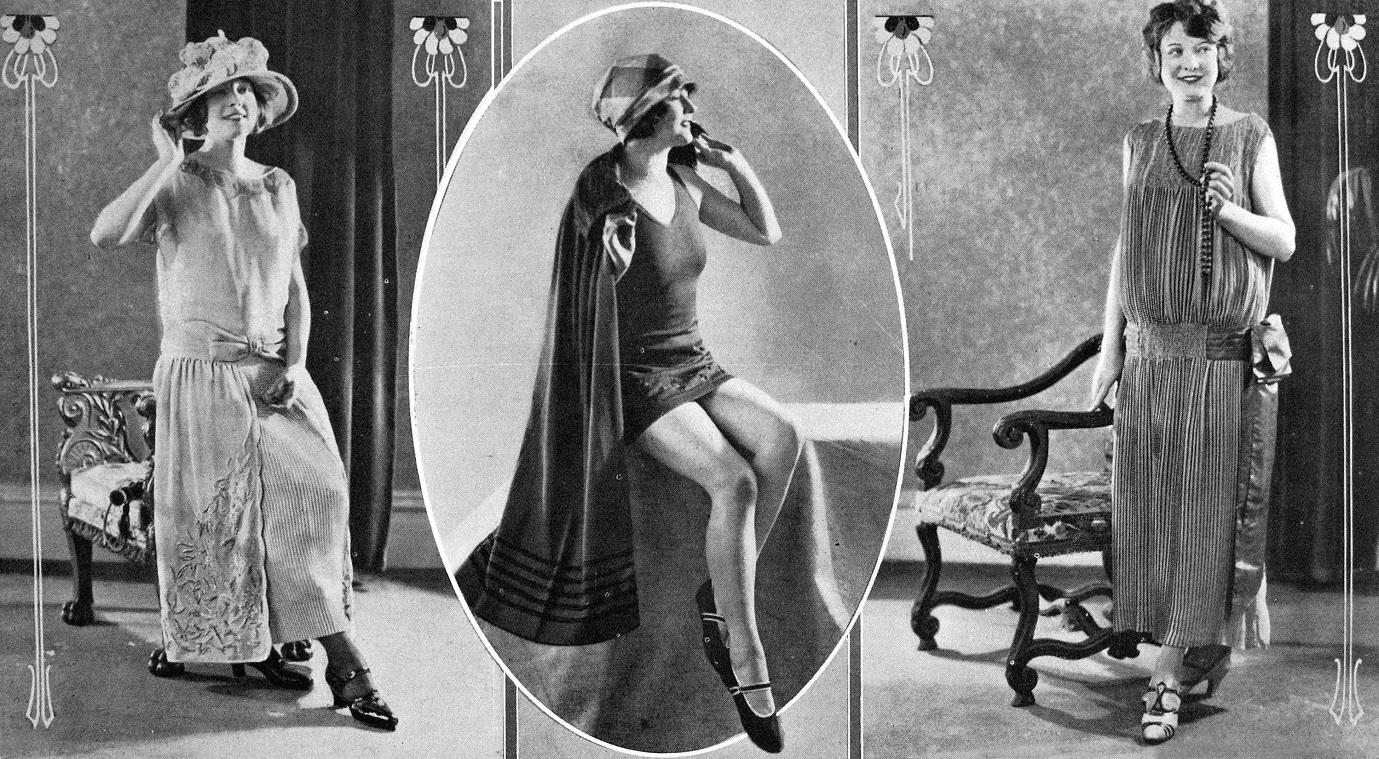The best-dressed women are those who have no best clothes. They simply have good clothes and wear them. If they are not well-off their wardrobes may be scrupulously limited, and their hats and suits may become very familiar to us. But never tiresomely familiar, because they always look nice. Moreover, a well-chosen hat that is the appropriate frame to our friend’s face becomes almost a part of her. Clever women do so absorb their dress and adornments; we are never more conscious of their decoration than of themselves. Personality and appearance blend in one atmosphere. But the woman who keeps best clothes hung up in the wardrobe to wear on special occasions never looks as nice as she might do. On everyday occasions she looks as if she were wearing out old clothes, and her looks do not belie her. Her attitude is one either of indifference or apology, and neither is becoming to her. She lacks the pleasant confidence which gives finish to the woman who is wearing her one and only, but fresh and modern suit. On high days and holidays, when the careful saver of her clothes brings out her best, it looks as if it had been brought out for the occasion. She is very conscious of her best clothes; ill at ease because she is afraid of spoiling them, uncomfortable because she has not got used to them. One of the dangers of best clothes is that we are apt to choose "for Sundays" something that is not suitable for every day. When the Sunday clothes, in course of time, descend to the drab level of Monday and Tuesday, they look hopelessly wrong, for now they are not only incongruous with their suggestion of finery, but unbecoming with their out-of-dateness. Give up storing clothes; it does them no good to hang in cupboards. They have no chance to become one with your individuality, and every chance to make acquaintance with the moth and with the mustiness of things that are put by. A better plan than best clothes would he to have worst clothes, an old suit and hat reserved for use on particularly wet and muddy days. And as to best, don’t you want to be at your best almost always?
To Hong Kong on business
Mr Henry Sew Hoy, who is leaving for China on a business trip in connection with his father’s firms, left by express for the north yesterday. Mr Sew Hoy was a prominent member of the Technical Colleges Hockey Club, and was given an enthusiastic send-off by his club mates, who had assembled in full force on the railway platform. Mr Sew Hoy is accompanied by his cousin Mr Hog Low Sew Hoy, who was born in China. They will leave Wellington by the Ulimaroa for Sydney, where they will connect with the steamer Victoria for Hongkong.
Religiously avoiding rates
There is quite a flutter of excitement among church folk in Wellington as the result of a recent judgment by Mr Justice Sim, who ruled that Sunday Schools are rateable by local bodies. The view generally held previously was that Sunday Schools came under the heading of premises used for religious purposes, which are, according to the Municipal Corporation Act, immune from rating. The imposition of rates will, according to church authorities interested, be a serious burden. Representatives of all the denominations which conduct Sunday Schools intend to wait upon the Prime Minister to urge him by legislation to continue the immunity from rates such institutions have hitherto enjoyed. — ODT, 27.6.1924
Compiled by Peter Dowden













